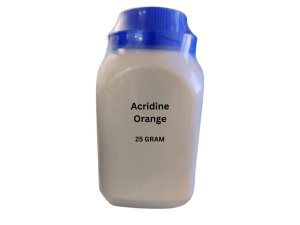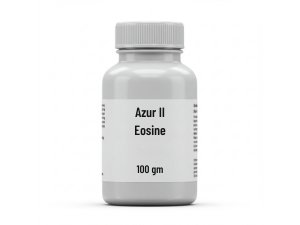L-Arabinose
₹260.00 – ₹7,700.00
L-Arabinose is a naturally occurring pentose sugar found in plant cell walls and gums, used in biological research and as a selective medium in microbiology. It is notable for its role in the arabinose operon in E. coli, a key model for gene regulation.
L-Arabinose is a naturally occurring pentose sugar, meaning it's a monosaccharide with five carbon atoms. It plays a significant role in various biological processes and has applications in scientific research and industry. Here's a more detailed description:
Chemical Structure and Properties:
- Chemical Formula: C₅H₁₀O₅
- Structure: It's a pentose sugar with an aldehyde group (aldopentose).
- Occurrence: It's found in plant cell walls, particularly in gums like gum arabic and gum karaya.
- Physical State: White crystalline powder.
- Solubility: Soluble in water.
- It exists in various stereoisomers, with the "L" form being the most common natural form.
Biological Roles and Functions:
- Plant Cell Walls: L-arabinose is a component of plant cell wall polysaccharides, contributing to the structural integrity of plant tissues.
- Arabinose Operon: It's famously involved in the arabinose operon in E. coli, a classic model for studying gene regulation. In this system, the presence of L-arabinose triggers the expression of genes necessary for its metabolism.
- Microbiology: It's used as a selective medium in microbiology to differentiate between bacterial species based on their ability to metabolize L-arabinose.
Applications and Uses:
- Biological Research: L-arabinose is widely used in molecular biology and genetics research, particularly in studies of gene regulation and bacterial metabolism.
- Microbiology: It's used in culture media to identify and differentiate microorganisms.
- Food Industry: It has potential applications as a low-calorie sweetener and in food products due to its ability to inhibit sucrose absorption.
- Pharmaceuticals: It's used in some pharmaceutical formulations and as a component of certain drugs.
Key Characteristics:
- Its role in the arabinose operon makes it a valuable tool in genetic research.
- Its presence in plant cell walls highlights its importance in plant biology.
- It has potential applications within the food industry.
In summary, L-Arabinose is a versatile pentose sugar with significant biological and industrial applications, particularly in research and microbiology.
Additional information
| Weight | N/A |
|---|---|
| CAS number | 5328-37-0 |
| Chemical formula | C₅H₁₀O₅ |
| Molar mass | 150.13 g/mol |
| Physical state | White crystalline powder. |
| Odor | Odorless |
| Melting point | 158-160 °C |
| Boiling point | Decomposes before boiling. |
| Density | 1.59 g/cm |
| Solubility in water | Highly soluble |
| Flash point: | NA |
| Autoignition temperature | NA |
| Dye Content | NA |
| Vapor pressure | Very Low |
| UN number | NA |
| Flammability | Combustible as a powder. |
| Carcinogenicity | L-arabinose is not classified as a carcinogen. |
| Grade | CP |
| Size | 25 gm, 100 gm, 1000 gm |
Only logged in customers who have purchased this product may leave a review.







Reviews
There are no reviews yet.